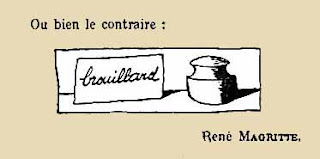by John Hansen *
Søren Kierkegaard is often thought of as the originator of existentialism – which is the notion that individuals can shape their own significance, objectives, and aspirations by using their freedom. We here explore, through Kierkegaard’s thought, existentialism’s unique way of creating meaning.• While philosophies championing freedom, such as political liberalism, individual autonomy, and rejection of determinism share many similarities with existentialist thinking, existentialist philosophy commonly explores themes of attendant anguish, apprehension, or disquiet. In its emphasis on total freedom, existentialism differs from philosophies that promote freedom yet fail to examine its existential implications fully.
• While existentialism often speaks of an absurd or chaotic world, it tends to resist nihilism and despair. Rather, it highlights the significance of persevering and taking accountability to transcend the lack of meaning in existence without falling into hopelessness. It centres on the belief that there is always purpose in life, and seeks freedom from life’s absurdities when it meets meaninglessness.
• While existentialists accept that freedom of choice is associated with anxiety and ambiguity – existential anguish often being accentuated as an integral part of human life – they acknowledge that it also allows people to choose their own values and goals. In the view of existentialist philosophers such as Jean-Paul Sartre, all individuals are ultimately responsible for their actions and decisions.
• While existentialist philosophy often portrays the world as uncaring or lacking any predestined intention, those who choose to view their lives as purposeful may question their decisions and goals. In a process of internal reflection, they face their realities and find transcendent wisdom beyond the confines of the finite universe, even though it is often fraught with conflicting forces.
All of these characteristics contribute to a tension, or duality in existentialism – and, as a result, the existentialist must continually strive to reconcile their contradictory existence. On Kierkegaard’s theory, we are constantly in conflict with ourselves and with our societies. Adversity and paradox are inherent to the human condition.
At the same time, opposing aspects of human nature must be reconciled. A major dichotomy which Kierkegaard emphasised was that between the finite and infinite, the transient and the eternal. Based on Kierkegaard's philosophy, disparate forces engage in dialectical interactions. To uncover truth, one must actively grapple with the uncertainties of one’s being.
As a major example, in Fear and Trembling, Kierkegaard depicts Abraham’s unwavering determination to sacrifice his only son, Isaac, as a symbol of the struggle between faith and ethics. Abraham represents both being a father and having unwavering faith in a higher, divine authority at the same time.
As one finds in this pivotal story, Kierkegaard notes that humans try to grasp their existence and find meaning in their lives from their subjective viewpoints – through the exploration of first-person perspectives – among them ethics, principles, and liberties. A key feature of his writing is the importance which he places on the individual’s experience, authenticity, and engagement with existential issues.
The attention Kierkegaard places on the inner life of the individual contrasts with the widespread sentiments of hollowness and anguish in society today. Thus, Kierkegaard’s ideas still matter today – as is witnessed, for example, by a series of articles published in The Guardian in 2010, by Clare Carlisle – one such being titled, “Kierkegaard and the Pursuit of Meaning.” Duality entails an existential conflict that must be accepted for one to discover oneself.
Kierkegaard's systematic questions enable us to discover conflicting forces and go beyond the finite world in a way that cannot be achieved otherwise. His discussion of duality illuminates the fundamental inconsistencies of human nature. The process of existential inquiry evolves from being a purely philosophical journey to being one of faith and uncertainty as a result of introspection.
---------------------------------
* John Hansen received a BA in English from the University of Iowa and an MA in English literature from Oklahoma State University. His work has appeared in Philosophical Investigations, Philological Review, The Summerset Review, One Sentence Poems, Schuylkill Valley Journal, Litro Magazine, Wild Roof Journal, The Banyan Review, Drunk Monkeys, Midway Journal, and elsewhere. He has presented on a variety of topics at The National Institute for Staff and Organizational Development (NISOD), The Conference on College Composition and Communication (CCCC—Regional), The American Comparative Literature Association, The Midwest Conference on British Studies, and others. He is an English Department faculty member at Mohave Community College in Arizona. Read more at johnphansen.com.




































